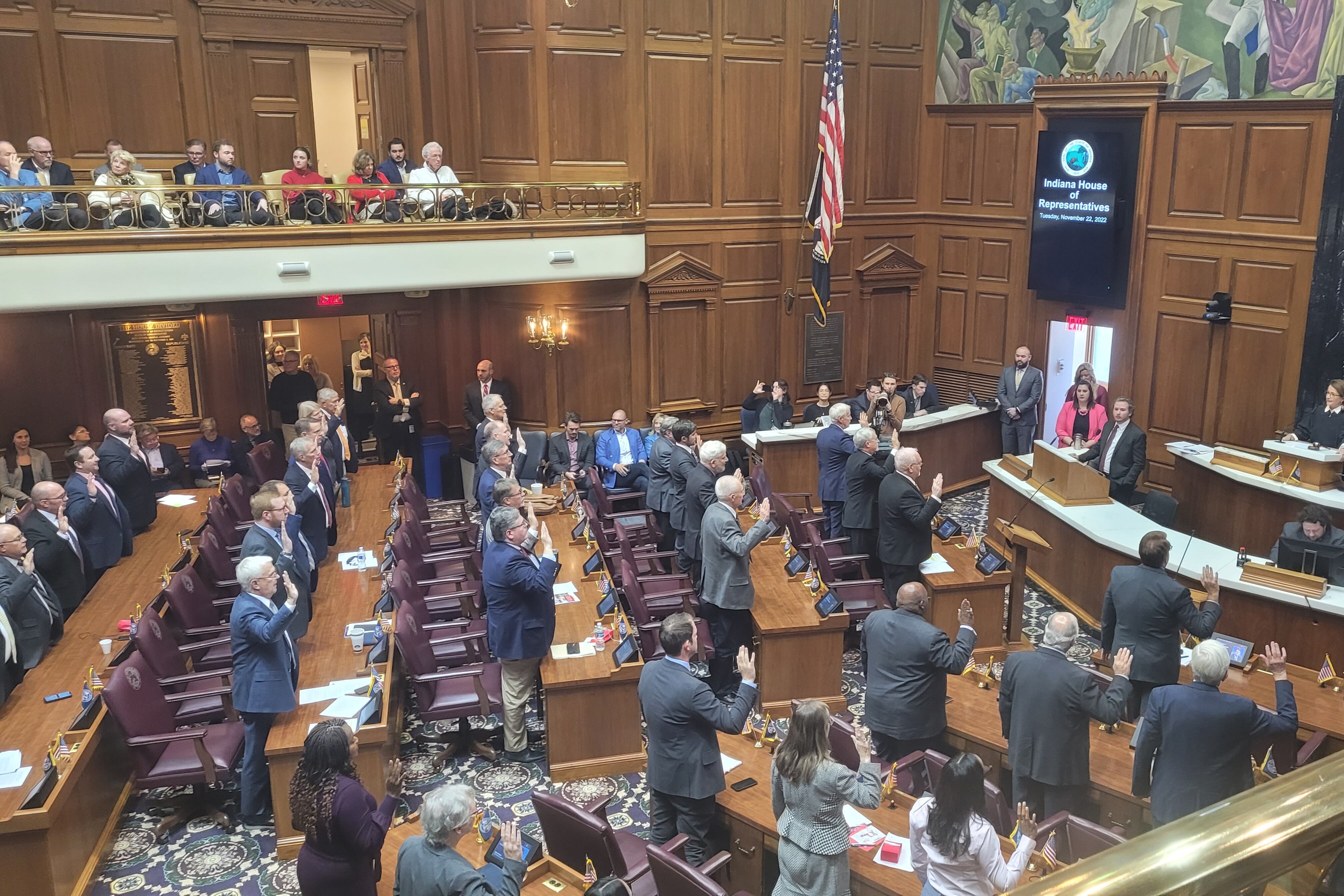Indiana teachers want lawmakers to boost funding for schools to address staff shortages in the 2023 legislative session, union leaders said Tuesday at events marking the ceremonial start of the session.
Representatives of the Indiana State Teachers Association and the American Federation of Teachers said the state’s disinvestment from public education has left schools struggling to attract and retain teachers and support staff at the expense of students.
“It has led to what people call a massive teacher shortage — but I would call it a massive teacher exodus,” said Randy Harrison, vice president of AFT Indiana.
Addressing those staffing woes through increases to state education aid would be more productive, union representatives said, than revisiting bills about divisive social issues that marked the 2022 session.
For their part, Republican leaders like House Speaker Todd Huston (R-Fishers) have said they expect to increase funding for K-12 schools while also investing further in the state’s school choice programs. In 2021 — the last budget year — lawmakers added $1.9 billion more for K-12 education.
But the money hasn’t stretched far enough, teachers said.
Casey Honkomp, a second grade teacher at Monroe-Gregg schools, said that while that extra funding allowed the district to raise salaries from $34,000 to the required state minimum of $40,000, the small, rural district is still competing for staff with other areas that can pay more. As a result, the district struggles to keep classrooms staffed, she said at an ISTA event.
“Keeping a teacher right now seems to be an impossible task,” Honkomp said.
Some Democratic lawmakers have also echoed the call for more funding.
“It’s fiscally irresponsible to be sitting on billions of dollars and neglect education,” said Sen. Fady Qaddoura (D-Indianapolis) at the AFT event, referring to the state’s surplus.
Dispute lingers over parents’ rights in school
Harrison also called on lawmakers not to revisit the controversial bills about social issues that defined the last legislative session, like one that would have created a list of concepts on race and identity that teachers couldn’t broach in the classroom.
Lawmakers and advocates who supported those failed bills characterized them as a matter of bolstering parents’ rights over their students’ education.
But speaking at the AFT event, former Superintendent of Public Instruction Jennifer McCormick said rather than neglect parents’ rights, most schools and teachers beg parents to be more engaged in their children’s education.
“I’ve yet to walk into a school where teachers say ‘no thank you’ to parents,” McCormick said.
Republican leaders have remained noncommittal about whether legislators will bring another bill on curriculum restrictions. Both Huston and Senate leader Rodric Bray (R-Martinsville) say they haven’t yet seen any bills on the matter. Tuesday was the first day for representatives to file legislation.
Skeptical of a plan to reinvent high school
The centerpiece of House Republicans’ education agenda is a plan to restructure high school requirements to allow students to receive credit toward graduation through work-based learning in lieu of specific courses.
The purpose is to better prepare students for postsecondary careers in the 21st century, Huston said Monday.
But ISTA President Keith Gambill characterized the idea as “pretty words.”
“If we want to make sure we are preparing our students for the workforce, we have to make sure each and every child has access to great educators,” Gambill said.
Apart from more funding, Harrison said AFT is also calling for an expansion of wraparound services in schools, less standardized testing, and local control for Gary schools.
The session will officially begin Jan. 9.
Aleksandra Appleton covers Indiana education policy and writes about K-12 schools across the state. Contact her at aappleton@chalkbeat.org.







